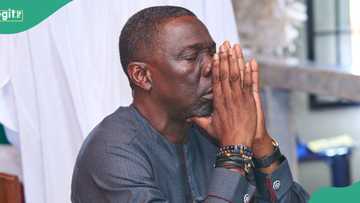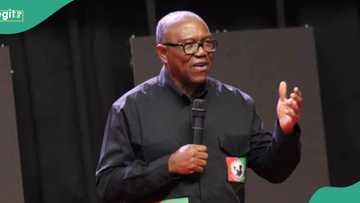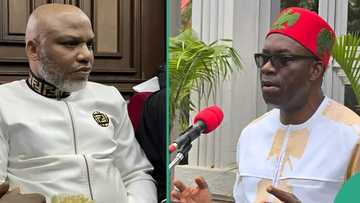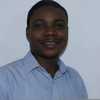Nigerian Elections: Inside Ahlus-Sunnah-Driven Political Quietism in Islam And How It Affected Polls
Legit.ng journalist Ridwan Adeola Yusuf has over 9 years of experience covering politics and elections in Nigeria.
CHECK OUT: Education is Your Right! Don’t Let Social Norms Hold You Back. Learn Online with LEGIT. Enroll Now!
FCT, Abuja - Fervid, eloquent, and clearly Westernophobia, popular Shaki-based cleric, Sheikh Musharaf Aderogba, gives a sermon wherein he persuades his listeners to shun democracy as it is 'evil'.
Delivered on September 16, 2022 — 4 months and 27 days to the crucial 2023 Nigerian general elections — Sheikh Aderogba, an Ahlus-Sunnah, battered elective government.
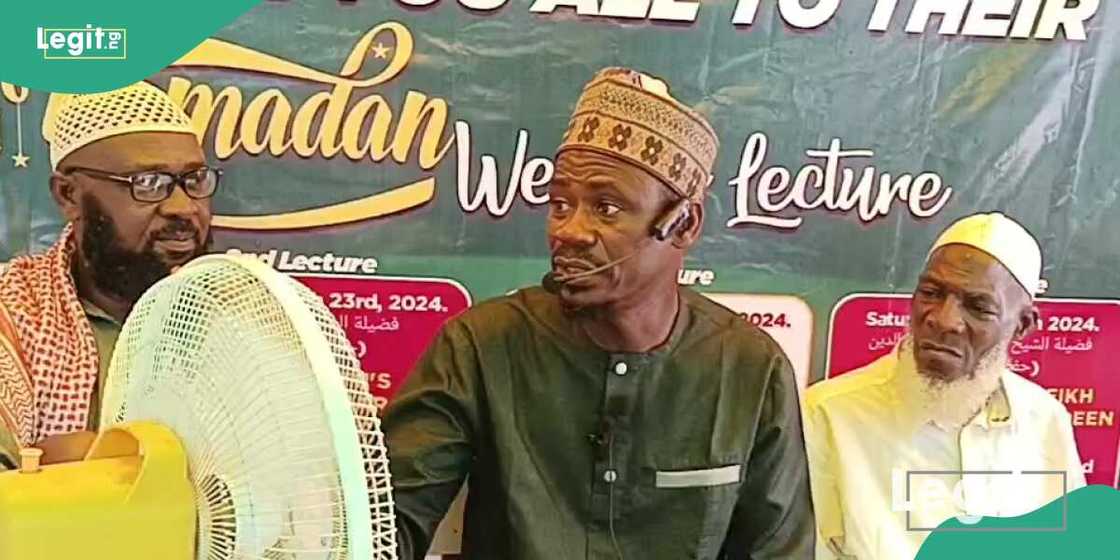
Source: Original
“Until the day of judgement, we will keep telling you that any Muslim immersed in democracy already has his hereafter destroyed,” he said assuredly in a video more than 79,000 people have viewed.
“All the atrocities happening globally are used to protect democracy. Our books made us understand that anybody who asks us to exercise franchise, such a person is an enemy - not a friend. He or she wants you to turn your back on Allah and please the West.”
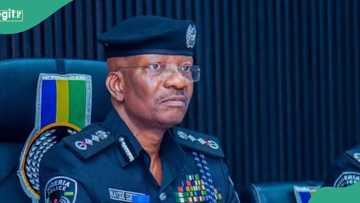
Read also
Ibadan stampede: Call surfaces for deceased children’s parents to be arrested, reason emerges
Sheikh Aderogba, the founder of the 'Musharaf Dawah' in Shaki in Oyo state, southwest Nigeria, did not limit his diatribe to the Global North, he lunged at fellow Muslims too.
“We know those who relish democracy among us - the Ikhwanis - they are crazy about democracy.
“If we are in a place, and we are unable to effect Sharia law, is partaking in evil regulations or the laws of the unbelievers the solution?” he asked rhetorically with an exasperated expression.
For context, some individuals among the Salafi sect of Ahl as-Sunnat Wal Jama'at group consider the methodology of Ikhwanul Muslimin as out of the sunna (the traditions) of Muhammad, the prophet of Islam, and thus denounce them.
Watch the full video below:
As might be expected, Sheikh Aderogba has co-travellers. His perception of democracy is shared by Muslims with ultra-conservative Islamic thoughts. For them, voting is tantamount to straying from Islam and could even pass as haram (religiously impermissible).
Adisa Shuaib Akanni, a self-identified Salafi, echoed the cleric’s view.
In Facebook posts during the electioneering for the 2023 presidential election in Nigeria, Akanni markedly preached against democracy, proceeding to aim a dig at Muslims in the country who allow religion to determine their voting behaviour.
Successive social media posts from him disapproved of constitutional government, and urged people to “be a very serious salafi”, while using the growing disillusionment with the political system to justify his position.
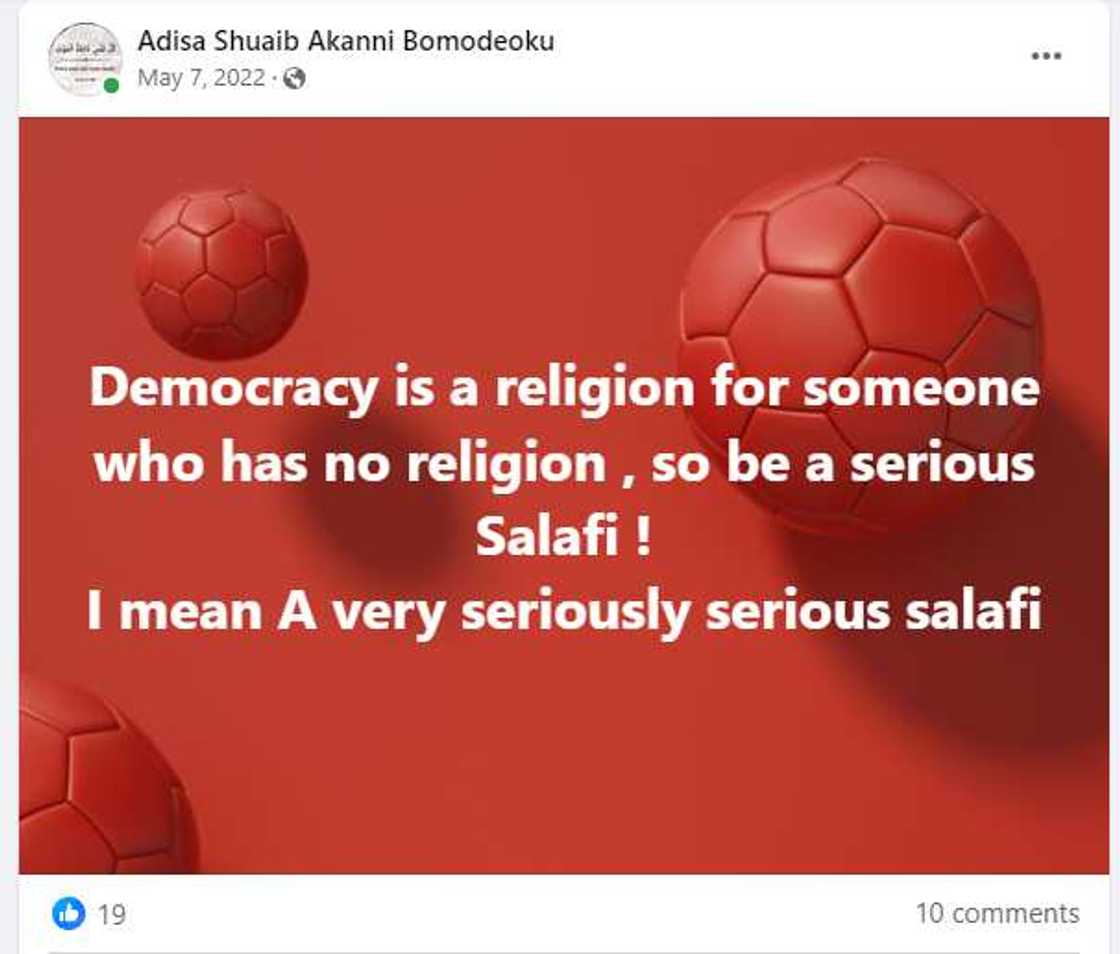
Source: Facebook
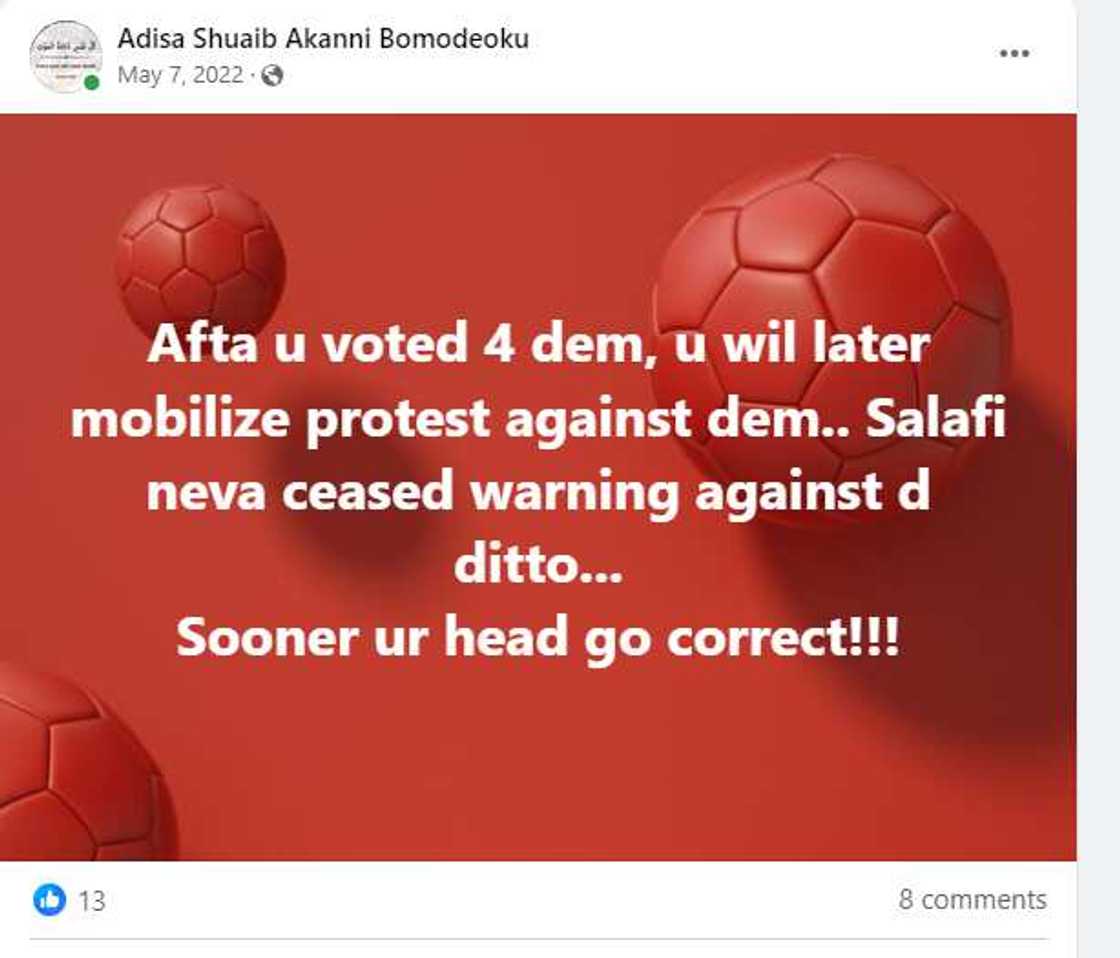
Source: Facebook
When a curious Facebook follower asked him to be explicit about his ‘no voting’ stance, he replied:
“It (voting) is a nickname given to the game called politics (dirty game). No one can hide behind a needle here, for they are not going there in favour of the masses if not for their pockets (sic).
“So, no Imam or any motivational scholars should come and advertise expired products. They would be telling you Islam needs this and that.
“Supporting a brother (a Muslim) for any elective post is nothing but a total dislike for the said brother's soul and his family,” Akanni declared.
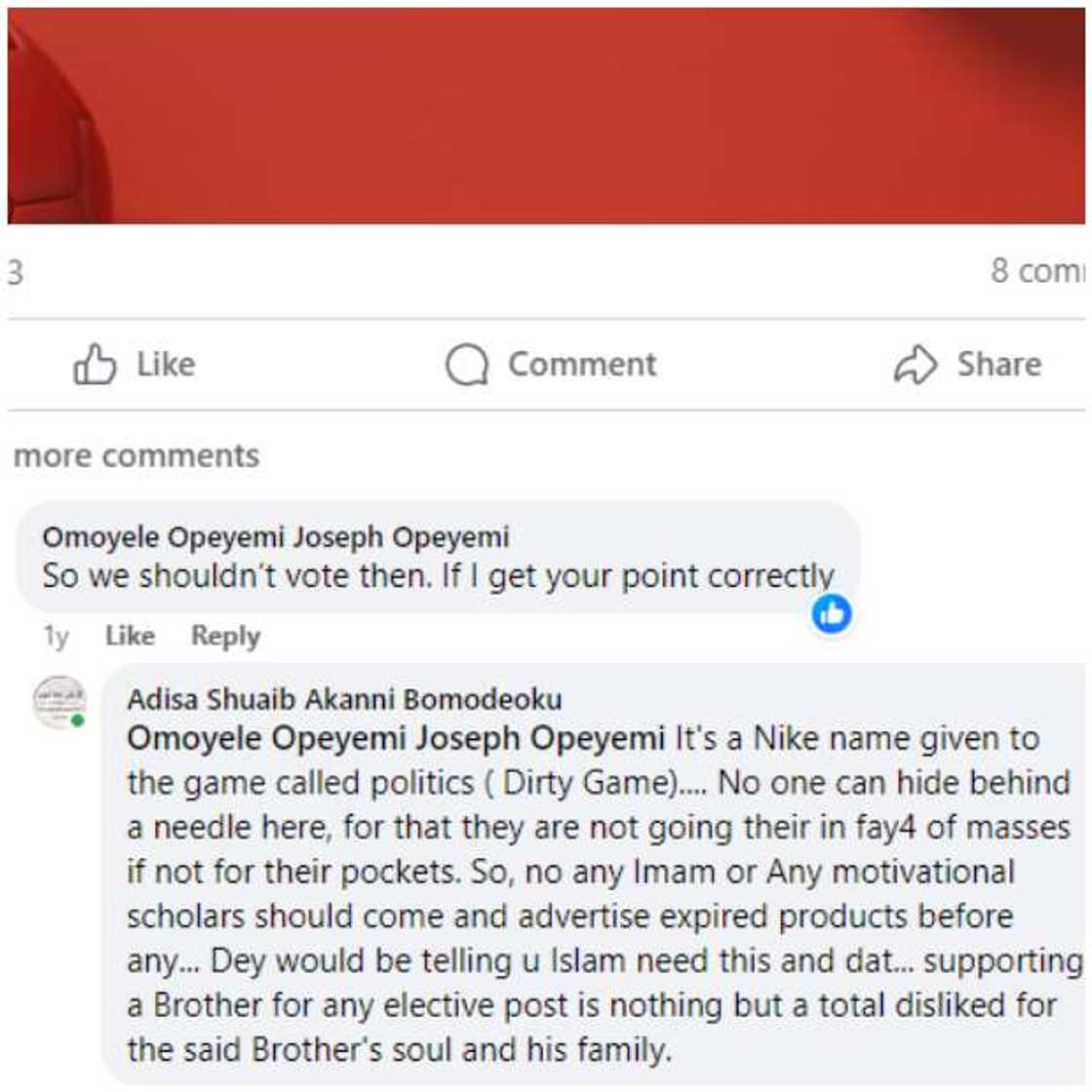
Source: Facebook
Quietism is often associated with being apolitical and disengaged from public affairs, and that is what has been observed among core Ahlus-Sunnahs. Most Salafis are quietists and eschew direct political participation.
Voter apathy among Ahlus-Sunnah in Nigeria
Estimates suggest 80-85 million Nigerians identify as Muslims (roughly 50% of the total population), of which the majority are probably Sunni (60 million). It is difficult to put a figure to the population of Ahlus-Sunnah adherents in the country as there are no available statistics about their proportion. Nonetheless, all three followers of Ahlu Sunnah, whom this reporter conversed with privately during the 2023 presidential election confirmed that they did not vote in the poll. One expressly said in pidgin: “me I no dey vote oo.”
Among this group of people, voting disengagement is a consensus — although many of them would not talk about it in public space.
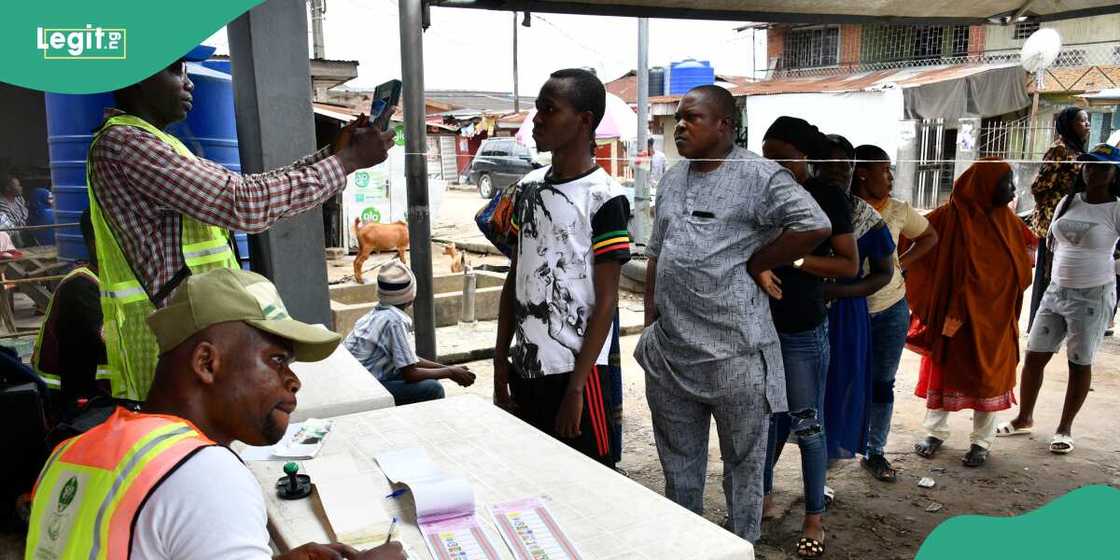
Source: Getty Images
By extension, their political alienation contributed to the February 25, 2023, presidential election being the poll with the worst voter turnout in the history of balloting in Africa's largest democracy. Of the 93.47 million registered voters, only 24.9 million persons voted in the presidential election which produced longtime political power broker Bola Ahmed Tinubu as president. This represents a meagre 26 percent voter turnout.
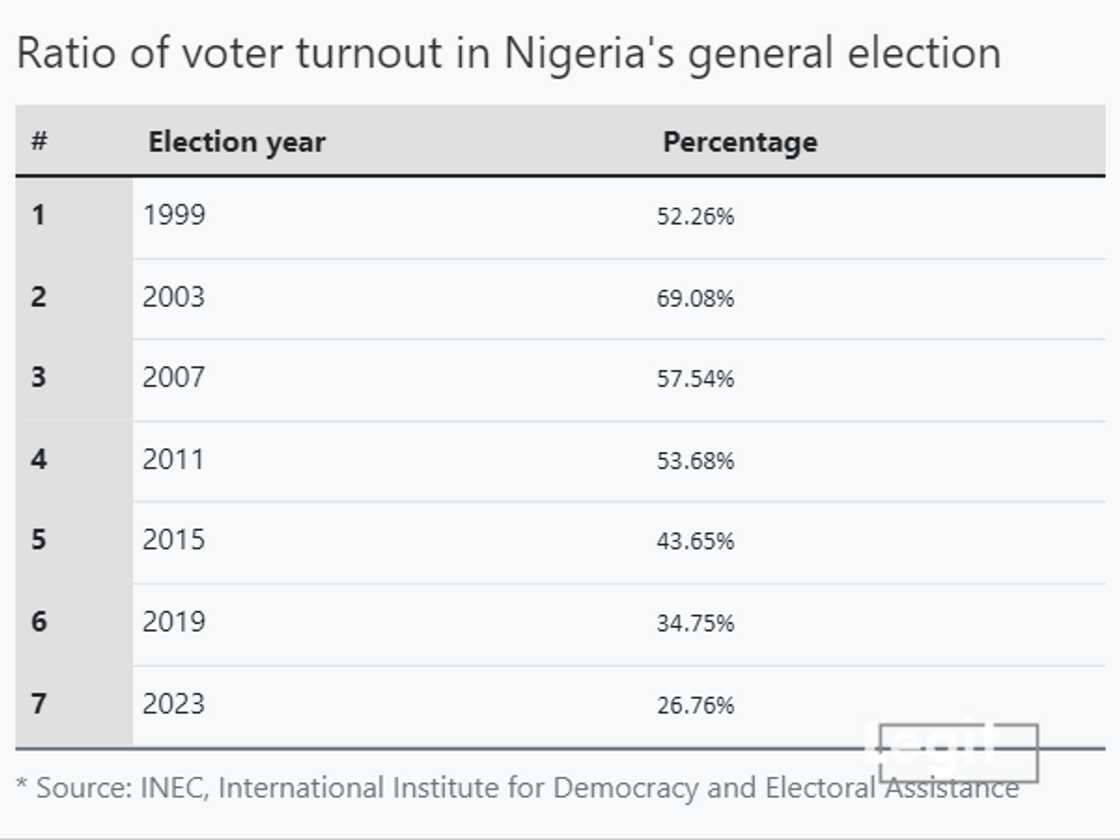
What does Islam say about voting?
Islamic legalities on voting vary, with different conditions and exceptions specified contingent upon individual interpretation and the particular school of thought.
Scholars from the majority centrist Sunni school of thought have put out fatwas (Islamic rulings) on when it is permissible to vote and why. These rulings tend to consider the greater good of voting and engaging politically in the country where one resides, attributable to the direct impact of political decisions in everyday life, centring Islamophobia as an issue to combat by voting.
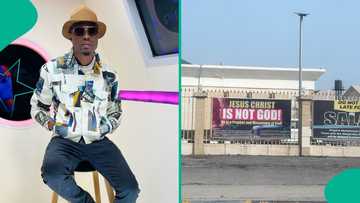
Read also
Vector shares take on Lekki mosque banner saying Jesus is not God: "They want to divide and conquer"
Notwithstanding, there are streams of Islamic thoughts such as ultra-conservative Salafism which prohibit voting, specifically in nations that are not governed by Islamic laws. But elsewhere, many scholars urge Muslims to become politically engaged.
Prominent Nigerian Islamic scholar and academic Tajudeen Yusuf shares that doctrinal standpoint, advocating for Muslims’ active involvement in the political process in Nigeria.
“We need to encourage active involvement of Muslims in the political process at all levels, including local governance, state assemblies, and national politics,” said Yusuf, a professor of Actuarial Science at the prestigious University of Lagos (UNILAG). “This can be achieved through support for Muslim candidates who prioritise the interests of their communities.”
Dr Idris Oni, acting head of the Islamic Studies department, Crescent University, Abeokuta, Ogun state, told Legit.ng that Islam “does not say anything in particular about voting” — but he added an addendum.
“Inferences can be made from several sources within Islam that could allude to voting or something close to it. So, we say that a majority opinion which is usually the goal of voting is well-recognised in Islam,” said Oni.
Reducing political apathy in Nigeria
Legit.ng earlier spotlighted possible ways to reduce political apathy in Africa's most populous nation.
It was noted that fighting political apathy helps to keep a government accountable.
PAY ATTENTION: Сheck out news that is picked exactly for YOU ➡️ find the “Recommended for you” block on the home page and enjoy!
Source: Legit.ng



